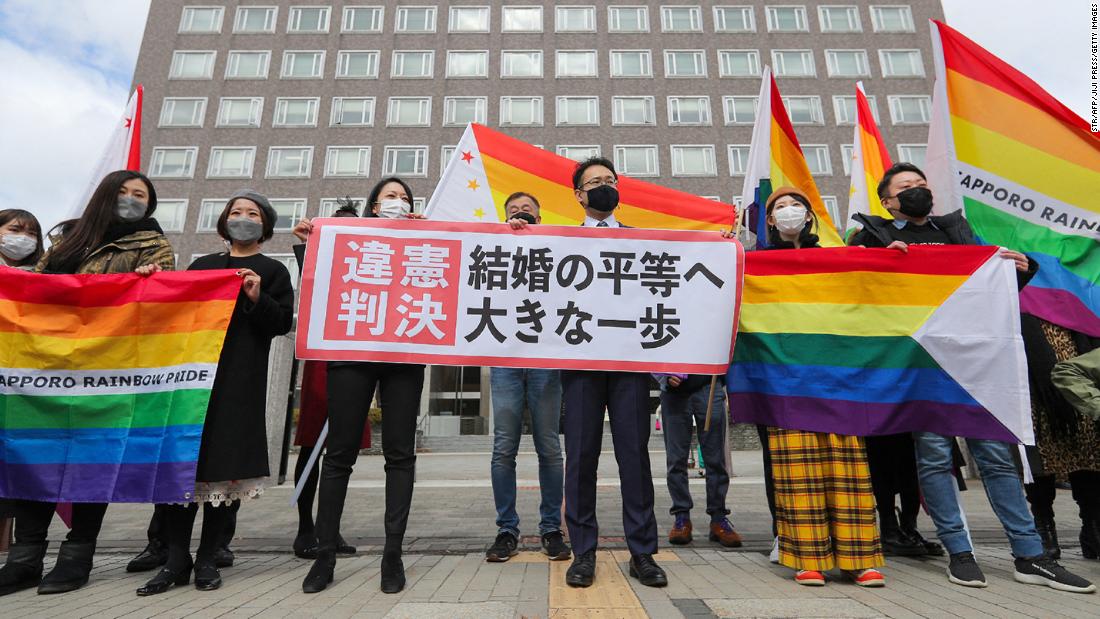The case began in 2019, when three couples in Hokkaido Prefecture filed a lawsuit claiming 1 million yen (about $ 9,160) for psychological damage caused by the government for not allowing same-sex marriage.
The Sapporo District Court in Hokkaido ruled on Wednesday that the government’s lack of recognition for same-sex marriage is a violation of a section of the constitution that requires equal laws for everyone.
But the court rejected the couples’ claims for damages.
The three couples were among several in Japan who are suing the government, arguing that the current same-sex marriage law violates their constitutional rights and should have the same legal rights and privileges as heterosexual couples.
Wednesday’s decision is the first verdict in ongoing cases.
“Today’s decision acknowledged that we really exist,” said a claimant known by the alias Takashi. “I want a society where sexual minorities have hope and a choice for the future.”
Kanae Doi, Japanese director of the non-profit organization Human Rights Watch (HRW), said the decision alone would not legalize same-sex marriage in the country – that it would need a Supreme Court decision, which could take several years old.
Alternatively, Japan’s legislature, the Diet, could pass a law making same-sex marriage legal, although there is almost no appetite for the ruling party to do so, she said.
But Wednesday’s “historic” decision was still significant, as it was a step towards legalizing same-sex marriage, she said.
Takeharu Kato, the plaintiffs’ lawyer, said he was also moved by the verdict. “I never expected the court to decide this clearly,” he said at a news conference, adding that the plaintiffs are now considering taking the case to a higher court.
The law in Japan
“Japan is very, very backward in terms of legislation regarding LGBT people,” said Doi of HRW. “This historic decision (on Wednesday) will put pressure on those who oppose the LGBT Equality Act.”
